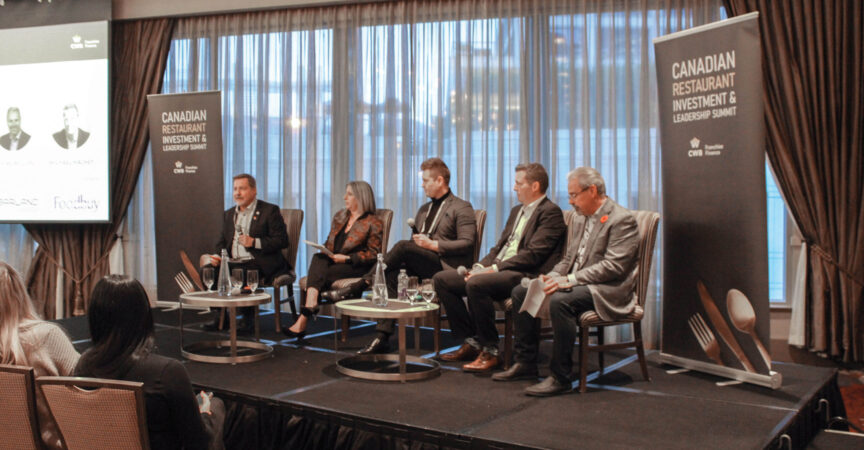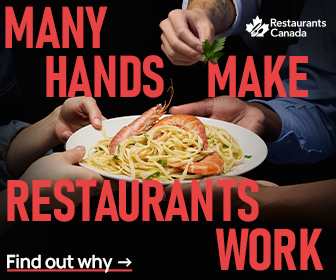Dispatch from the 2022 Canadian Restaurant Investment & Leadership Summit
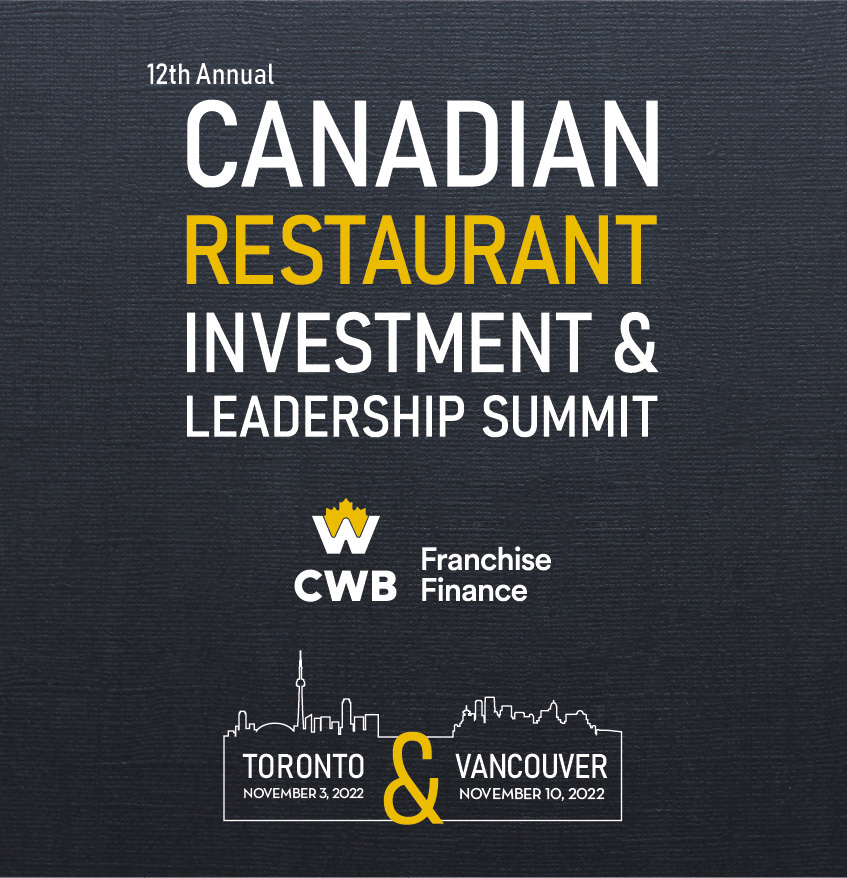
The annual Canadian Restaurant Investment & Leadership Summit brings a group of hospitality CEOs together for a rare opportunity to engage with sector thought leaders and exchange peer-to-peer perspectives on the Canadian hospitality industry.
Hosted by Canadian Western Bank (CWB), the idea for the Summit came from U.S. events that sought to bring sector leaders together around the topics related to restaurant development and growth through a leadership lens. With no similar opportunities in Canada, a small group of GE Capital determined to create a domestic event in Toronto. Since the team’s move to CWB in 2016, the event has only grown in credibility and influence. Now in its 12th year, the 2022 Summit took place in Toronto on November 3rd, with its first-ever Vancouver event following on November 10th.
“We’ve been hosting this event for 12 years now,” says Jacob Mancini, AVP, Restaurants & Breweries, CWB Franchise Finance at Canadian Western Bank. “The foundation of the summit was formed through a couple of events that we used to attend in the U.S. that really focused on the restaurant industry from a different viewpoint than just operations. These events were built around concepts of investment development and growth and focused on leadership and the higher thought processes around what operators and business owners were doing to grow and remain competitive in the space. At that time, there wasn’t anything similar in Canada. Even now, most sector shows and conferences are targeted towards folks on the operations side or culinary side, not on the management and leadership side of things. We really wanted to create this environment where senior leaders could come together and network.”
Over the years, the event has provided not only a forum for the exchange of information but performed as a sort of ad hoc incubator of ideas and connections. “Over the years we’d hear stories about how groups or individual attendees would get together and new things and thinking would come from that,” says Mancini. “Whether or not it was mergers and acquisitions-level stuff didn’t matter. Just getting together and figuring out common challenges or having private, unplanned conversations with peers—the opportunity was there and the value to the industry was clear.”
Mancini’s division of CWB is a specialized lending group within the bank, focused on hotel, restaurant and hospitality lending. They take the view that despite current challenges within the sector, growth will continue, if a little cautiously for now. “It’s very consistent industry. Restaurants are always going to be here, and they’re always going to be an important place just about every consumer—no matter who they are—utilizes. It’s a very large, far-reaching segment. Despite some of the near-term challenges and risks, once you hit a certain amount of scale and infrastructure, well-managed brands are actually quite stable and consistent. If you’re doing the right things and have proof of concept, you can grow. The last three years have shown how important restaurants are to the fabric of society. The topline sales numbers have never been as strong as they are these days.”
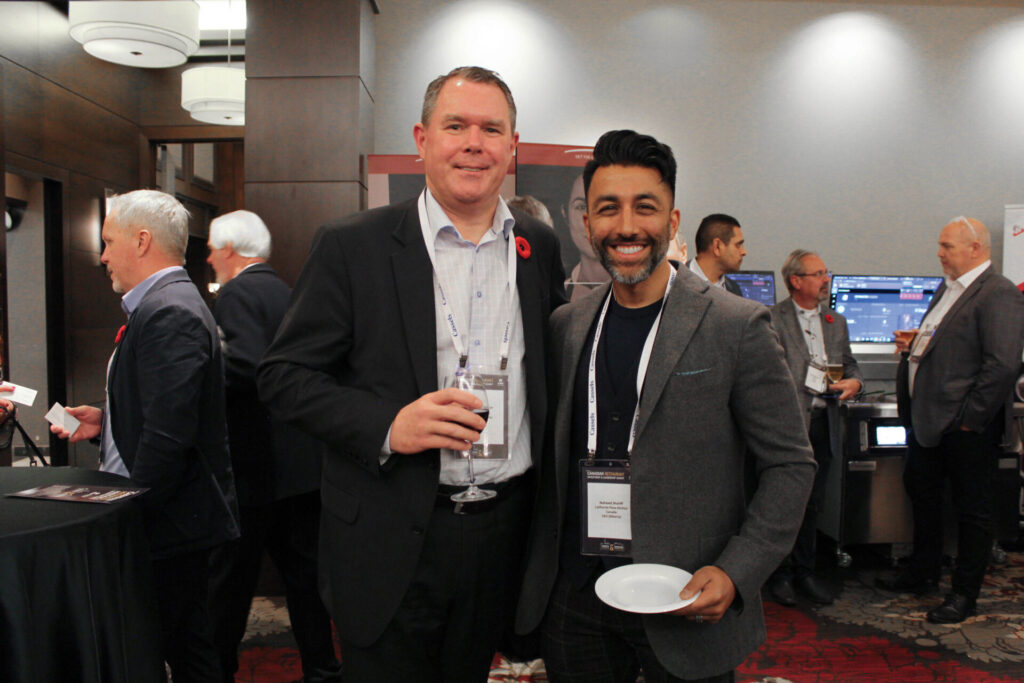
I really enjoyed being on the panel and sharing my thoughts about the restaurant industry. The last 30 months have been difficult for many, but we have been re- silient, we survived, and are now we are ready to grow. – Peter Mammas, CEO of Foodtastic
Mancini takes the investor’s view that, brands that were well-managed and stable going into the pandemic have largely retained that stability and value even through the rollercoaster ride the past few years. “If you were successful before, odds are you will be after the fact,” he predicts. “What we keep an eye on now is how people are adjusting and responding to challenges. Were you able to successfully pivot your model to takeout and delivery when perhaps you didn’t have that line in place previously? Are you able to capture what customers are looking for now and in the future—that experience piece?”
These are some of the questions, challenges and insights dissected in the summit program and panels, with the presentation of the NPD data and the CEO panel the most anticipated sessions by delegates from both large and small restaurant groups. “If you’re a smaller operator or brand there’s real benefits and real enjoyment to being in the same room with C-level executives at big brands. We often hear feedback from all delegates that having a chance to meet a certain individual, talk to or hear from them is really interesting, motivating and insightful. Big brands are also really intrigued by hearing about what smaller, operators who are maybe more nimble or more creative are doing. It speaks to the importance of creating these networking opportunities that really didn’t exist before this event.”
This year’s CEO panels included Daniel Frankel, CEO of Tap & Barrel Group, Ritou Maloni, Co-founder, President an d COO of Pür & Simple, Hadi Chahin, CEO of MBI Brands, Jordan Holm, President of Boston Pizza International, Peter Mammas, CEO of Foodtastic, and legendary entrepreneur and CEO and owner of FDF Restaurant Brandz, Frank di Benedetto. Peter Mammas acknowledged the importance of the event and participating in the panel and gave an indication of the leadership perspective on what lies ahead for the sector. “I really enjoyed being on the panel and sharing my thoughts about the restaurant industry. The last 30 months have been difficult for many, but we have been resilient, we survived, and are now we are ready to grow.” Hadi Chahin agreed. “The Canadian restaurant landscape has room for all brands and concepts to grow and succeed. The key is to build a great support team, stay innovative and never accept the status quo.”
While it’s fair to say that most current operators are plugged in and acutely focused on market forecasts, there was lively discussion and a few surprises during the event. Chris Elliott, Chief Economist & Vice President, Research at Restaurants Canada, moderated the Hot Topic Panel Discussion, which focused on the opportunity within the disruption within the industry and which technologies and ideas will define the path toward future industry success. “I presented the stat that restaurants sector ranks 208 out of 210 industries when it comes to labour productivity, which led to a few audible gasps. Given that labour shortages are here to stay, the only way to grow the business is by improving labour productivity and embracing technology and automation. There is certainly room for growth in this area.” Elliott also notes that rising food prices and the looming economic slowdown were topics that held the attention of the room.
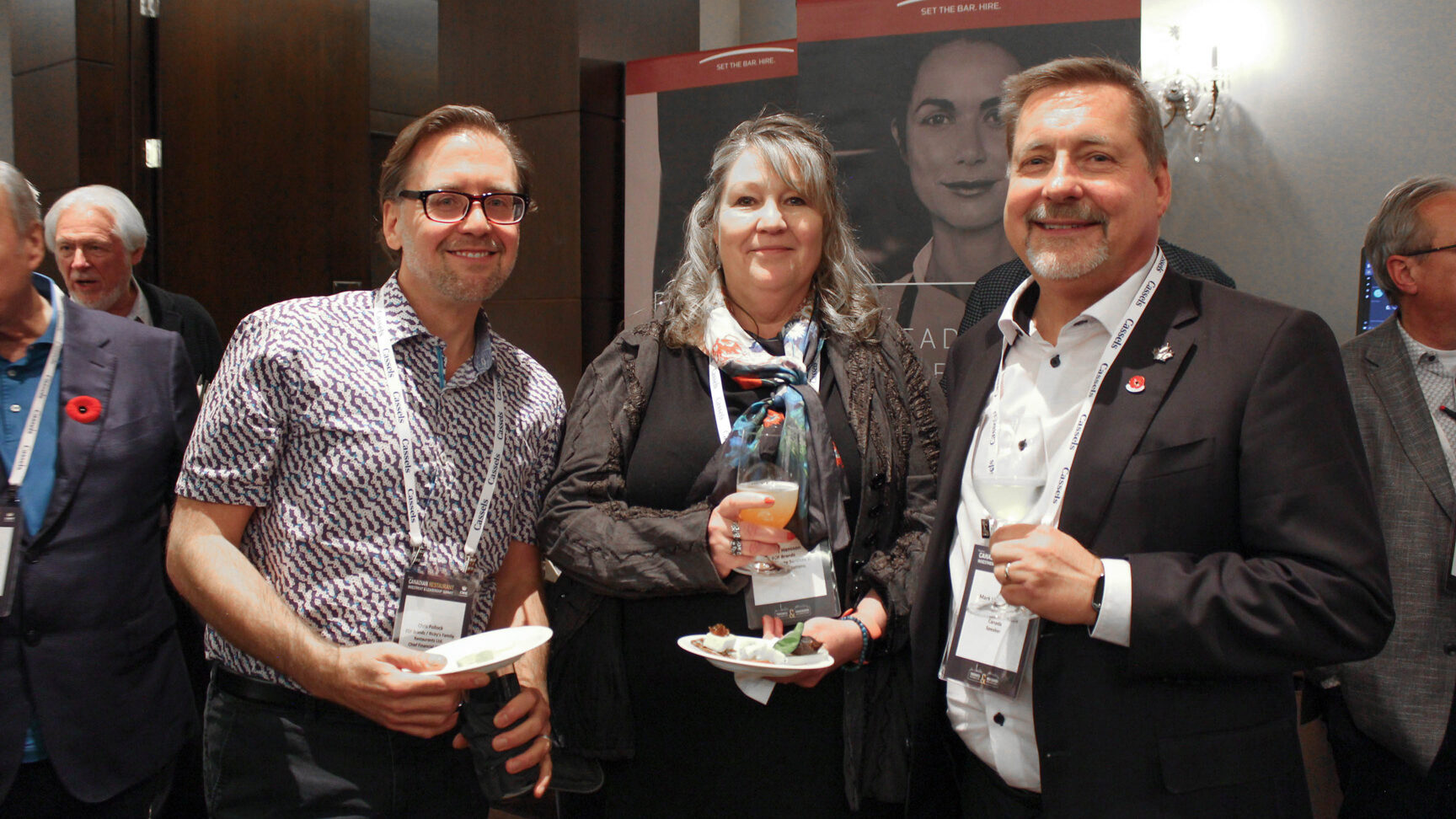
“I presented the stat that restaurants sector ranks 208 out of 210 industries when it comes to labour productivity, which led to a few audible gasps. Given that labour shortages are here to stay, the only way to grow the business is by improving labour productivity and embracing technology and automation. There is certainly room for growth in this area.
– Chris Elliott, Chief Economist & Vice President, Research at Restaurants Canada
“These people have gone through the last few years we’re not out of this yet,” Mancini agrees. “We’re hopefully cycling in the right direction. The mood at the Summit was ‘cautious optimism’. While most are really, really happy with how things have gone last few years in terms of the way that they were able to rebound and manoeuvre their brands to continue to be successful, they absolutely recognize some of the challenges on the horizon, particularly with respect to labour. Labour and technology were by far the biggest talking points of this event. These leaders realize that there’s going to be a tough couple of years despite the recent topline success. They know it’s going to continue to be difficult to make money.”
While previous events accommodated 300-400 people, the planning team opted to keep this year’s events intimate and focused, with registration open to just 90 delegates to increase the quality of attendee experience and opportunity. “We wanted to learn whether something a bit smaller and simpler, but more targeted would better serve the Summit group. Early feedback was they really enjoyed it. It expanded the tent a little bit for folks from Vancouver who maybe didn’t see the value of flying out to Toronto. I think that and the intimacy really resonated. The targeted piece was really kind of instrumental. Everyone felt like they had if they were somebody they wanted to talk to, they had an opportunity to talk to them.”
Coming out of the Summit, Mancini notes many restaurants have been able to increase prices in line with rising costs without necessarily losing business as a consequence. “It shows that people still really, really want to use restaurants, right? Whether that’s for an event or an experience or just the convenience of going to drive through or ordering delivery. Margins are under pressure from supply chain issues and inflation, labour and immigration. There are clear challenges right now in the industry, but there’s no question the demand for it is there. It’s very clear this industry is not going to go away.”



